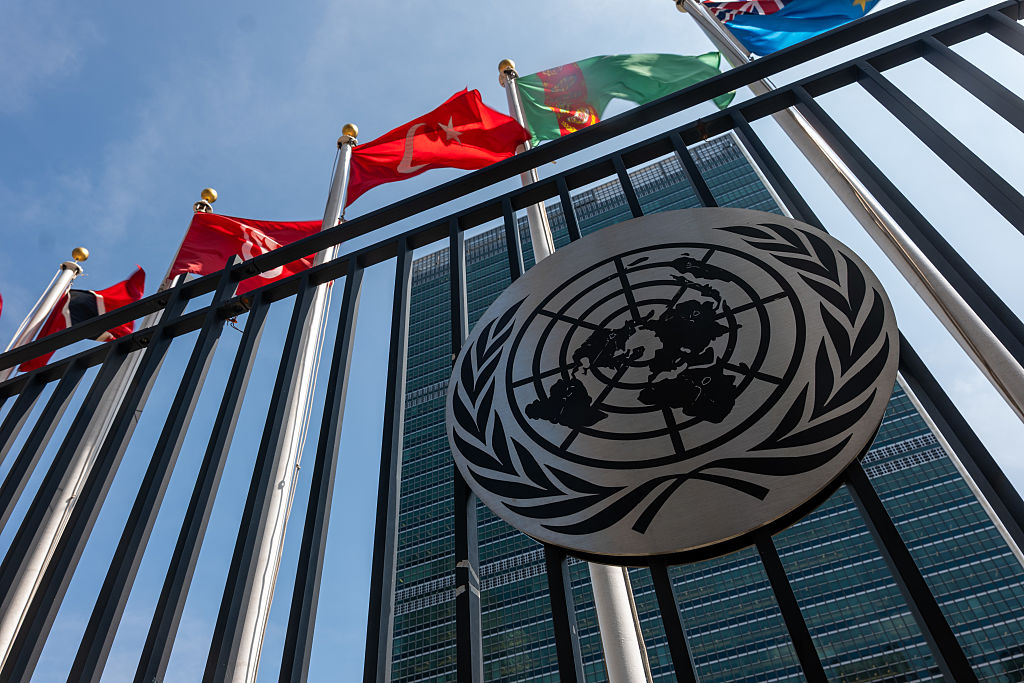By Terry McGovern and Clarisa Bencomo
As UN Member States today celebrated the 30th Anniversary of the Beijing Declaration and Platform for Action and reaffirmed commitments to women’s equality and empowerment, many of these same governments are pursuing policies that undermine that goal.

The Beijing Declaration and Platform for Action provided governments, civil society, and UN agencies with a framework for a comprehensive approach to achieving gender justice. Among its many achievements across the world, more girls are completing their education; deaths during pregnancy and postpartum have almost halved; and almost every country has introduced or strengthened laws against gender-based violence. Critical to these successes have been:
- Feminist organizations and movements that have understood that none of us are free until we are all free. This means centering the most marginalized and rejecting all efforts to criminalize and pathologize LGBTQI+ people and affirming the full diversity of women and girls.
- Data and scholarship to identify and address the complex structural factors affecting the health, well-being, and bodily autonomy of women and girls in all their diversity. This means supporting national and global quantitative and qualitative data collection on the state of gender justice, and ensuring that the needs, desires, and priorities of the most affected women, girls, and gender-diverse people drive our research agenda.
- Access and participation for the women and girls most affect by injustice to local, national, regional, and multilateral processes without fear for their lives, safety, and well-being.This means providing the financial and logistical support they may need before, during, and after these processes; ensuring appropriate security, privacy, and confidentiality for participants; and holding multilateral, state and non-state actors accountable for delivering on these responsibilities.
- State and non-state actors holding themselves and each other accountable for promoting, protecting, and ensuring gender justice as a fundamental part of human rights. This includes ensuring transparent periodic national and civil society reporting on Member State progress in fulfilling their responsibilities.
- UN, regional, national, and local government budgets that ensure adequate spending for gender justice, including comprehensive sexual and reproductive rights and health. This includes funding for comprehensive sexuality education, safe abortion care, access to a full range of contraceptive options, and dignified, skilled pregnancy and postpartum care.

Today, these fundamental elements of gender justice progress are at risk in the current UN80 restructuring process. The defunding of the United Nations Population Fund (UNFPA), the Demographic and Health Survey (DHS), and other major sources of data, research, and services for sexual and reproductive health and justice is putting future gains at risk. Cuts to the Office of the High Commissioner for Human Rights are reducing staff and field presences that support human rights defenders. A draft CSW revitalization plan could end periodic member state progress reporting. Across the UN system, language about sexual and reproductive rights, trans rights, and accountability mechanisms is dropping out of multilateral commitments.
Advancing gender equality and women’s empowerment cannot be fulfilled without addressing reproductive autonomy and health. The Sexual & Reproductive Justice Hub (SRJ Hub) at City University of New York Graduate School of Public Health & Health Policy is committed to advancing SRJ in the US and globally. This year, we launched one of the only MPH concentrations explicitly built around a reproductive justice framework. We’ve created the first endowed professorship in Sexual and Reproductive Justice at a school of public health, named for scholar-activist Byllye Avery, the founder of the Black Women’s Health Imperative. And we host the civil-society-led #365toEndGBV campaign, amplifying the voices of feminist grassroots activists around the world in support of bodily autonomy in all its forms.
Terry McGovern is professor and senior associate dean for academic and student affairs and Clarisa Bencomo is project director for gender justice at CUNY SPH.




